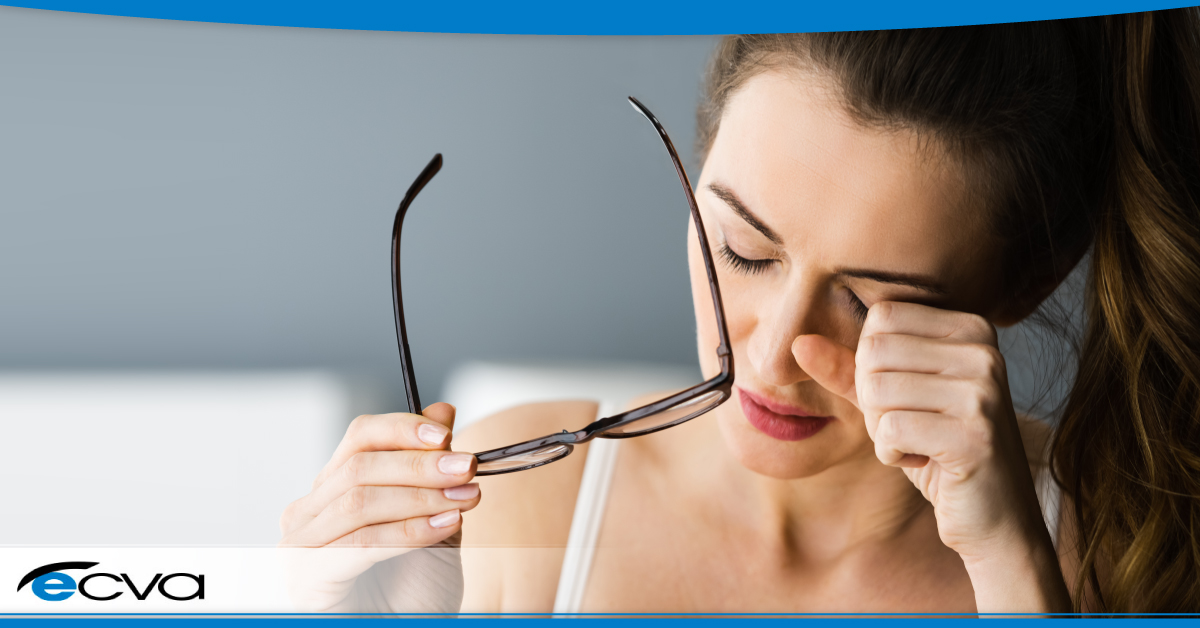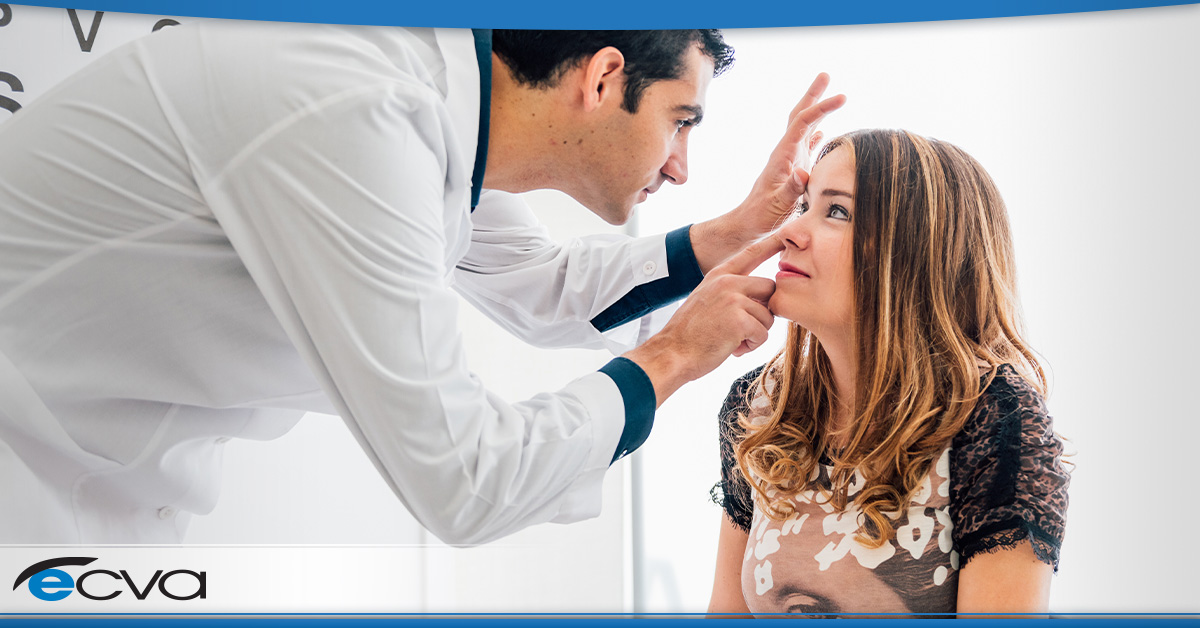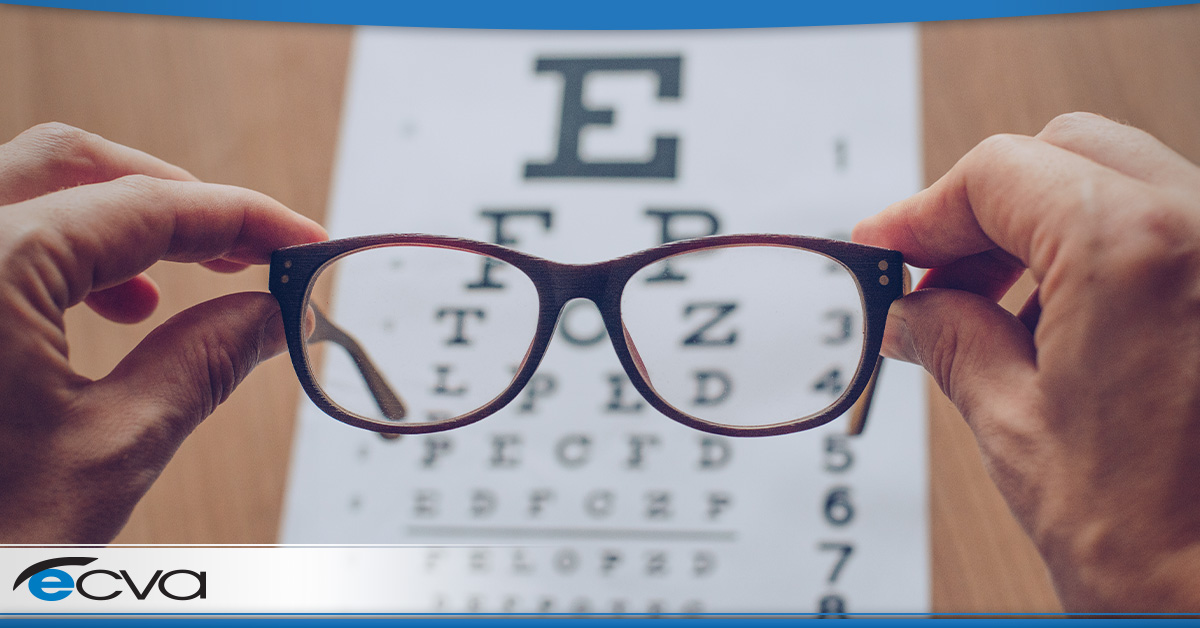If you’re considering cataract surgery, you’re probably looking forward to the results but nervous about the process. That’s only natural, but it is commonly performed, and cataract surgery has a high rate of success. Success rates of 97-98% are indicated, according to recent studies, with few complications. Learning as much as possible about the procedure and what to expect before, during and after the surgery can go a long way toward putting your mind at ease.
What is a Cataract?
A cataract is formed when the lens of the eye becomes cloudy, usually because of age. They can also be caused by disease or even an accident. It is progressive – it will not go away on its own and is likely to worsen. Cataracts quite literally cloud your vision and can eventually interfere with daily activities and your quality of life. Fortunately, cataracts can be removed surgically.
What is Cataract Surgery?
Cataract Surgery is a procedure to remove the eye’s lens and replace it with a prosthetic. It can be performed with a scalpel or a 3D-aided laser. It is one of the most frequently performed surgeries. Cataract surgeons in Buffalo and throughout the world report a very high success rate. Recovery is usually quick, with healing beginning within just a few days, and all normal activities resumed within weeks.
Questions to Ask During Cataract Consultation
Don’t hesitate to ask your ophthalmologist any questions you may have. They will be happy to provide answers. A well-informed patient is more confident, better prepared and more likely to comply with post-surgical care instructions. Here are a few to start with but add anything you are curious about to your list.
What is the Difference Between Laser and Traditional Surgery?
Both types of cataract surgeries are still currently used and are safe and effective with a quick recovery. It usually depends on the type of surgery in which your eye doctor has the most experience or the equipment available to them.
Traditional Cataract Surgery
In traditional cataract surgery, the surgeon uses a small blade to make an incision at the edge of the cornea and remove the clouded lens. An artificial intraocular lens (IOL) is then implanted to replace the natural lens. IOLs are made of plastic, acrylic or silicone.
Laser Cataract Surgery
Cataract surgery can also be performed with a laser rather than traditional instruments. In laser cataract surgery, 3D imaging is used to guide the laser, making it accurate and easy for the surgeon to control. The laser tends to make the procedure quicker and more comfortable. The process of replacing the natural lens with the IOL is the same.
How Should I Prepare for Cataract Surgery?
The ophthalmologist’s office will give you detailed instructions at your appointment. Read them immediately to give yourself time to ask any questions. Review them again a day or two before your scheduled surgery to ensure you are fully prepared. You may need to stop some of your medications. You will need a driver to transport you to and from your cataract surgery and spend some time with you when you return home. You may need to fast for some time from the night below. Come to your appointment wearing comfortable, loose-fitting clothing.
Your eye surgeon may recommend starting your prescription eyedrops before the surgery. Antibiotic and/or anti-inflammatory eye drops help you heal quickly and comfortably and reduce swelling and the risk of infection.
Are Any Additional Tests Required Before Cataract Surgery?
Because of the low-risk outpatient nature of cataract surgery, few additional tests are required. If your eye surgeon has any concerns about pre-existing conditions, they may ask that you see your primary care provider before proceeding. About a week before your surgery, your ophthalmologist will measure your eye to select the correct IOL. At this time, you will receive further instructions and may get a prescription for medical eye drops.
Questions To Ask About Cataract Surgery
There is really nothing you should hesitate to ask. Your surgeon is an expert and will be happy to ask any cataract surgery questions you have. When you are well-informed, you are more likely to be a calm, confident patient. Here are some commonly asked questions about cataract surgery.
How Long Will Cataract Surgery Take?
Cataract surgery is usually an outpatient procedure and won’t take long. The paperwork will probably take longer than the procedure, which is only about 20 minutes start to finish to complete. You’ll stay at the surgeon’s office for a brief observation period – most likely less than an hour or so. You will then be permitted to return home with your driver.
Will I Feel Anything During Cataract Surgery?
Before surgery begins, your cataract surgeon will numb your eyes with drops or injections to ensure you are comfortable. Because you are awake throughout the procedure and may be given medication to keep you calm and relaxed. You won’t be able to see anything clearly, but may detect light and motion while the cataract surgery is being performed.
What Are The Risks of Cataract Surgery?
While no surgery is completely without risk, serious side effects are rare. Closely following post-surgical instructions can minimize the chance of complications. The serious issues that ophthalmologists watch for are swelling, infection and retinal detachment.
Swelling. While some swelling of the eye during the first 24 hours is common, it should go away on its own. Be sure you are using your eyedrops as prescribed. If it persists or gets worse, contact your surgeon’s office. They may ask you to come in for an examination or prescribe stronger drops. The doctor could instruct you to use your current drops more frequently before trying other solutions.
Infection. The best way to avoid infection is to use your prescription eyedrops as instructed and be very careful with your eye area. Refrain from touching your eyes unnecessarily. When you must touch the eye area, such as when applying drops, wash your hands thoroughly with soap and water. Be sure the eyedropper doesn’t touch your eye or the surrounding area.
Retinal Detachment. Cataract surgery can slightly increase the risk of retinal detachment. The risk can be higher for those with certain eye conditions. You can always ask your ophthalmologist if there is any reason you would be at a higher risk of retinal detachment if they don’t bring it up.
There is nothing you can do as a patient to prevent retinal detachment other than making yourself aware of the signs. The most common symptom of retinal detachment is a sudden increase in the number of floaters or seeing flashes of light. It’s usually painless, and you may think it’s fine to wait and see if they go away on their own. This is a mistake that could cost you your vision. Contact your ophthalmologist immediately, no matter what time it is. Do not wait for office hours.
What Is The Cost Of Cataract Surgery?
According to the Medicare website, the cost of cataract surgery in the United States is typically between $1,606 and $2,664. If you are eligible for Medicare, your out-of-pocket costs can be as little as $320 to $530. There are variables that affect costs, such as where you live, the type of facility where the procedure takes place and other factors. Cataract surgery is usually covered by insurance but may not be approved until the condition has advanced to the point where it interferes with your daily activities.
Questions To Ask About Cataract Surgery Recovery
You may be so excited by the improvement in your vision you are tempted to overdo it; but be kind to yourself. Take it easy the first few days. Get plenty of rest and follow your surgeon’s post-surgical instructions to the letter. If you don’t feel well-informed or have specific questions – ask. There should be no guesswork when it comes to your vision. Here are some common questions people in Buffalo ask about cataract surgery recovery.
How Long Does It Take To Recover From Cataract Surgery?
Recovering from cataract surgery is usually quick and painless. You can resume most activities in a few days and be fully back to normal (with better vision!) within weeks.
Healing from any surgery, illness, or injury can vary greatly from one individual to another. Cataract surgery is no different. Eye doctors for cataract surgery in Buffalo report most patients are fully healed within two to three months, provided they comply with post-surgical care instructions.
Once you are fully healed, your vision is likely to be as good as it was before the cataract developed. It may be even better, especially if your surgeon is able to use a corrective IOL to resolve near- or farsightedness.
What Is The Expected Recovery Time From Cataract Surgery?
Don’t be discouraged if your recovery doesn’t follow the same timeline as a friend or family member. The route to healing varies. Some patients may notice an immediate dramatic improvement. Others experience post-surgical swelling that prevents them from seeing results until the swelling goes down. For most people, their vision improves gradually over a period of weeks.
For the most part, you can expect to be able to work, drive and go about most regular activities within a week, possibly with some cautions or restrictions. You may or may not still need prescription eyeglasses depending on factors outside of cataracts and their removal. If you have additional questions about how long it takes to recover from cataract surgery, or have other cataract surgery concerns, contact your ophthalmologist.
How Can I Help Aid Recovery After Cataract Surgery?
The best way to participate in your recovery after cataract surgery is to follow your surgeon’s instructions. If anything is unclear or you can’t find answers in your paperwork, don’t hesitate to call the ophthalmologist’s office. They would much rather answer your questions to keep your healing journey on track than have you worry or guess.
Rest and hydration are essential to any healing process. Be patient and take it easy. Vacuuming and your exercise routine can wait until your doctor clears you for those activities.
Use your prescription eyedrops, taking care to use clean hands. Don’t rub, press or scratch your eyes or the surrounding area. Don’t get soap or water in your eyes. Your ophthalmologist may recommend you wear glasses to protect your eyes and prevent you from absentmindedly touching them.
Are There Any Activity Restrictions After Cataract Surgery?
Your surgeon is the best one to tell you which activities are fine to resume immediately and which ones you should put on hold for a week or more until you are fully healed. Cataract surgery is minimally invasive and has a quick and easy recovery, so there are few limitations. Most normal household activities are considered safe.
Typical post-surgical restrictions for the first few days to a week may include the following:
- Don’t exercise or drive until cleared by your surgeon.
- Avoid heavy lifting or strenuous exercise.
- Wait 24 hours before showering.
- Don’t let water into your eye.
- Don’t swim with your head under water.
Check with your cataract surgeon to find out if these or other restrictions apply to you.
What Symptoms Should I Expect After Cataract Surgery?
You may experience blurry vision after the procedure. It should gradually improve as your eye heals. Most people see slight improvement immediately that increases in the days or weeks that follow. Itching and mild discomfort is common in the first few days. Resist the urge to touch your eyes or the surrounding area.
After cataract surgery, your eyes will be sensitive to sunlight and require protection from UV rays. The right kind of quality sunglasses for cataract surgery recovery are essential to protect your vision.
When Should I Contact My Eye Care Provider After Cataract Surgery?
After cataract surgery, you’ll be scheduled for a series of follow-up appointments. The first is usually within a day or two, then a week later, then a month after that. These appointments are scheduled so the doctor can monitor your progress and answer any questions you may have. Again, don’t hesitate to call the office if you have questions, concerns or unexpected discomfort. As mentioned above, contact your cataract surgeon if you notice any pain, swelling, redness, light flashes, or an increase in floaters or vision loss. Prompt treatment can make all the difference to a making full recovery and preserving your vision.
Cataract Surgery In Buffalo, NY
Eye Care & Vision Associates is a trusted provider of cataract surgery in Buffalo. Contacting our skilled, experienced cataract surgeons in Buffalo can be the first step in restoring your vision. We offer our clients vision care from childhood to adulthood at all stages of their lives. If your vision isn’t as clear as you’d like, there is an alternative. Request an appointment online or call us at 1-716-631-EYES (3937).
















